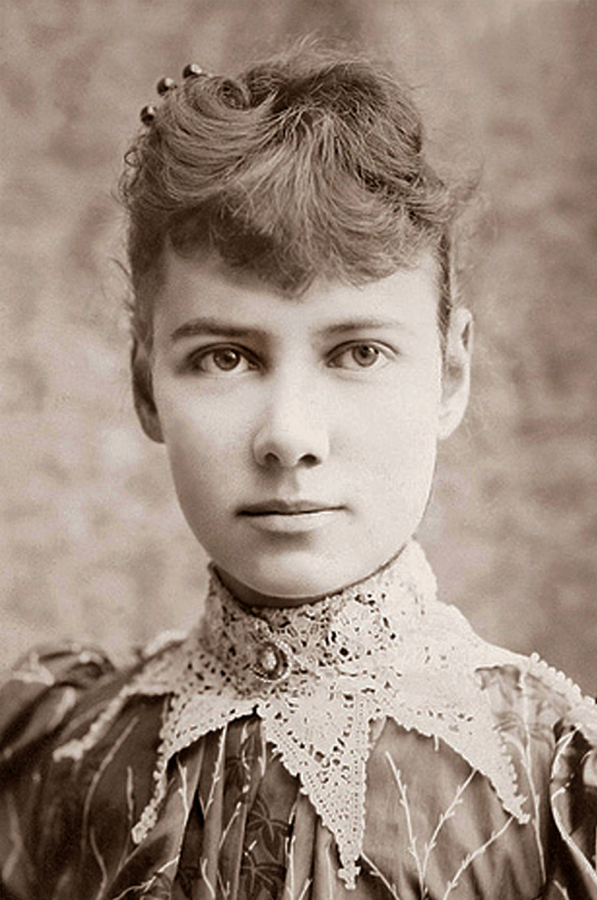Who Was Nellie Bly?
April 6, 2021
Elizabeth Cochrane, also known by her pen name, Nellie Bly, was an American Journalist who sought to expose inequalities in the world; she is most famous for her work in reforming mental hospitals. She began her career in 1885, writing an angry letter to the editor of the Pittsburgh Dispatch, in response to an article, “What Women are Good For.” Impressed with her writing skills, the editor posted her rebuttal and hired her. With her impressive work ethic and passion for writing, she began working on pieces right away.
Many of her first articles were about slum life, the conditions of working girls, and the experience of immigrants in America. These were less reported on issues, and an impressive contribution at the time, as women’s writing was typically confined to “The Women’s Pages.” She slowly moved up the ranks and in 1887, she traveled to Mexico, sending back reports on corruption and the working conditions of the poor. These reports were harsh enough that she was expelled from the country which established her reputation as a force to be reckoned with.
Looking for a more well-known newspaper, she traveled to New York and secured herself a spot at the New York World. One of her first undertakings and most famous works was her exposé of the Blackwell’s mental asylum. Bly admitted herself to a woman’s boarding house after hearing rumors of abuse and mistreatment. After successfully tricking the doctors into believing she was mentally ill, Bly began taking note of how patients were treated, stating her objective was making sure that “the most helpless of god’s creatures” were being properly cared for. What Bly observed however was shocking, as she noted that the food was nearly inedible, describing it as spoiled meat and dirty bread. She also reported that for her bath, she was scrubbed ferociously with cold water and put in a dress without being dried off, leading her to shiver in the blanket given to her that was too “much too short.” Bly also explained that the patients were not given therapeutic activities, but instead told to sit on benches and clean the institution, including the nurse’s bedrooms and clothing. When asked how the nurses treated her, Bly responded saying that they were cruel and once, a nurse told her that she doesn’t “need to expect any kindness here” as she won’t receive any.
These shocking accusations and more came out in Nellie Bly’s exposé, leading a grand jury to launch an investigation into Blackwell’s asylum and other mental health institutions. While Bly’s article did not magically fix the treatment of asylum patients, it brought much-needed attention to the issue and led to later changes in the treatment of those deemed mentally ill. Her piece is especially important to remember because it opened up a conversation about the treatment of patients in mental institutions. It also serves as a reminder to second guess “proper treatments” to ensure that the treatment of everyone is fair and humane, no matter how much on the outskirts of society people may seem. Nellie Bly’s bold journalism reminds us to pay attention to marginalized groups and proves that no matter how difficult a task may seem, one person alone can confront injustice and push for a more just society.


